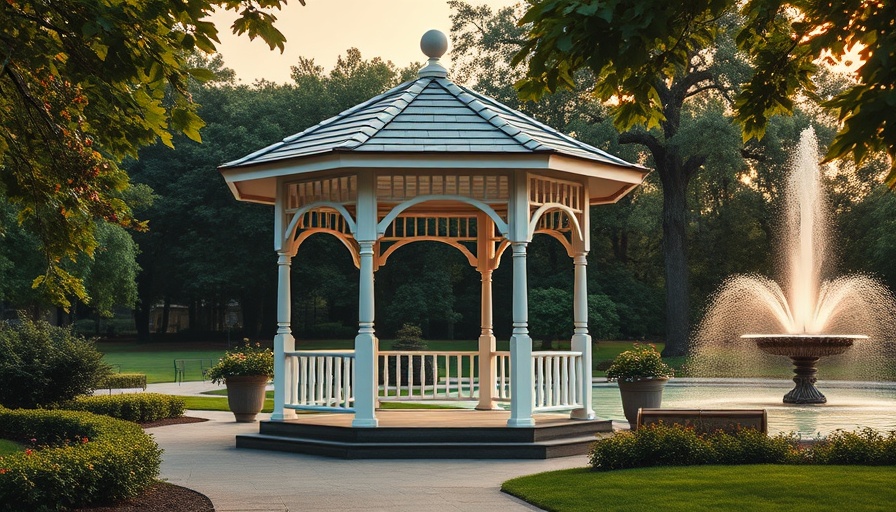
Transform Your Outdoor Space: Build the Perfect Gazebo
Whether you're nestled in a chic New York City apartment or enjoying the serene landscapes of Denver, a gazebo can significantly enhance your backyard experience. Imagine the transformation: a cozy retreat for morning coffee or an inviting space for evening gatherings with friends and family. As homeowners look to make the most of their outdoor areas, understanding the essentials of gazebo construction is key. Here’s a guide to crafting the ideal gazebo, incorporating expert insights to elevate your outdoor living space.
Understand the Purpose of Your Gazebo
Before diving into construction, it’s crucial to define the role you want your gazebo to play. Perhaps it’ll serve as an intimate space for al fresco dining or a tranquil nook for reading and relaxation. Andy from Backyard Oasis emphasizes tailoring your structure to its intended use: "If it's for dining, position it near your outdoor kitchen; for relaxation, choose a secluded spot with natural beauty." This clarity ensures optimal placement and design that maximizes the use of the space.
Choosing the Right Materials for Durability
The success of your gazebo also heavily hinges on the materials you select. Homeowners in climates with extreme weather must weigh their options carefully. Cristina Mercado from Karma Construction Group advises that "weather-resistant materials like cedar or thermally modified wood are a must if you want your structure to withstand rot and insect damage." Opting for durable materials ensures your gazebo remains a cherished addition for years, regardless of climatic changes.
Creative Lighting Solutions to Enhance Atmosphere
Once you've mapped out the materials and design, incorporating appropriate lighting will further elevate your gazebo experience. Ideal for both style and function, low-voltage lighting can create a magical ambiance at night. Imagine your friends gathering under softly lit spaces, creating unforgettable memories under the stars. "Think of lighting that highlights the best parts of your structure while providing functionality," shares Jon from Raleigh.
Future Trends: Sustainability in Gazebo Design
As we move into an era increasingly concerned about sustainability, the trend towards eco-friendly materials is likely to gain traction in outdoor design. Expect future gazebos to incorporate solar panels for energy-efficient lighting and rainwater collection systems. Such innovations not only promote sustainable living but also enhance the functionality of your backyard space.
Why a Gazebo is a Wise Investment
Investing in a gazebo also adds substantial value to your home. Real estate experts contend that properties with appealing outdoor structures often see a boost in market value. A well-constructed gazebo can serve as a unique selling point, particularly for prospective buyers looking for additional entertaining space. Plus, the joy and functionality it provides can greatly enhance your quality of life.
Make Your Outdoor Dreams Come True!
For homeowners eager to enrich their yards, taking the plunge to build a gazebo offers countless rewards. From providing a stylish place to entertain to the intimate ambiance it creates, a gazebo can elevate your outdoor experience significantly. So gather your materials, plan thoroughly, and get ready to enjoy your own piece of paradise right at home.
 Add Row
Add Row  Add
Add 




Write A Comment